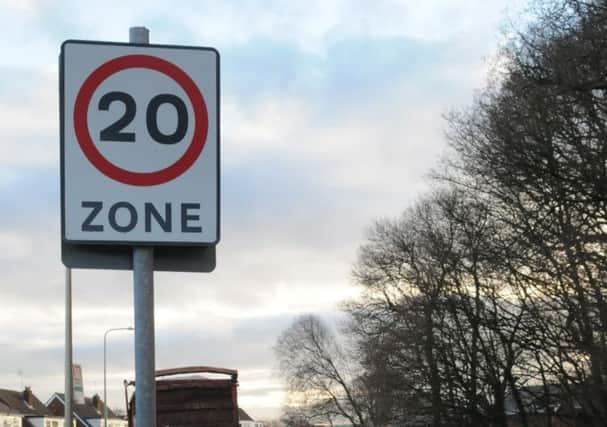Slow roll out of 20mph zones, say drivers


Almost 70 per cent of drivers think people should be consulted before 20mph limits are imposed on their street, the new AA/Populus survey showed.
More than half, 55 per cent, said drivers’ views should be sought if 20mph zones are introduced in local areas through which they travel.
Advertisement
Hide AdAdvertisement
Hide AdBut just under a third of those surveyed said 20mph limits in built-up areas offered such a great road safety benefit that residents’ views did not have to be taken into account.
AA president Edmund King said the organisation supported the setting up of 20mph limit where residents want then, but said the need for “local democratic approval” was clear.
He said: “Neighbourhoods face differing challenges from traffic: some may need to slow down their own residents and reduce the risk of accidents, others have a ‘rat-running’ problem that a 20mph speed limit on its own won’t address.
“The case for lowering speed outside vulnerable locations, such as schools and hospitals, is generally accepted. However, sweeping 20mph restrictions that slow down commuters, business deliveries and services, and the pace of a town or city in general, are not.”
Advertisement
Hide AdAdvertisement
Hide AdThe survey also asked drivers about the introduction of speed cameras along 20mph routes, and the response was evenly split, with 41 per cent agreeing to the cameras and 38 per cent against.
In Yorkshire, 74 per cent of drivers said they had to check their speedometer more in a 20mph limit than a 30mph zone.
Mr King said speed indicating signs should be used to help familiarise divers with lower speeds to avoid them taking their eyes off the road and at the speedometer.
The campaign group 20’s Plenty For Us argues for default 20mph limits, with targeted 30mph limits, like what has been introduced in York, and elsewhere in Portsmouth, Oxford and Islington, which they say is supported by public health research.
Advertisement
Hide AdAdvertisement
Hide AdCampaign manager Anna Semlyen criticised the survey, claiming the AA had asked the wrong questions to the wrong people.
She said: “The main beneficiaries of slower speeds - children, pedestrians, cyclists, disabled, elderly and non-car owners - were not asked their opinions.
“In British Attitudes Survey by DfT and YouGov surveys, with a more representative sample, over 70 per cent support 20mph limits for residential streets, and this rises post-implementation.
“The AA are asking the wrong questions of an unrepresentative sample and are ignoring public health professional consensus. They are stirring it up and trying to protect motorists.
Advertisement
Hide AdAdvertisement
Hide Ad“All the leading public health bodies like Public Health England and the Association of Public Health see the wider benefits of slower speeds including encouraging exercise. Only default 20mph limits can offer wide gains to health for all.”